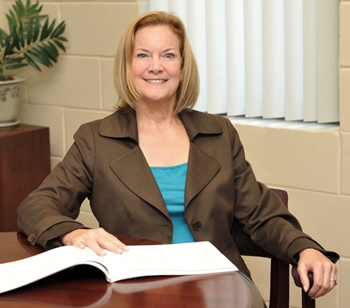
Math skills are increasingly critical to Florida’s economy, yet many of the state’s students struggle with the subject. Their problems begin early: More than one-fifth of Florida third-graders struggle in math, according to this year’s state assessment, and in upper grades, the statistics only grow grimmer.
But with a new, $2.8 million grant, researchers at Florida State University aim to correct those math problems sooner rather than later in a student’s life. The grant from the Florida Department of Education (DOE) to FSU’s Learning Systems Institute (LSI) will fuel the creation and testing of innovative tools and strategies to help educators teach mathematics more effectively.
Led by the Florida Center for Research in Science, Technology, Engineering and Mathematics (FCR-STEM), a key part of LSI’s large research and development organization at Florida State, the ambitious effort has the potential to transform how teachers teach math and how well students are prepared to learn mathematics as they advance up the grade levels.
“Helping children while they are still young is critical, because early math skills are a strong predictor of later academic success,” said Laura Lang, director of the Learning Systems Institute and the grant’s lead researcher. “Studies suggest that it can be far more effective than lowering class size or increasing teacher content knowledge.”
Called the Mathematics Formative Assessment System (MFAS), the effort Lang is leading will be built around the idea, buttressed by encouraging research, that students are better learners of mathematics when teachers gain insights into what students know and are able to do so. That way, teachers can differentiate instruction — i.e., teach children according to their instructional needs.
For example, teachers using formative assessment in the classroom ask students to perform tasks, explain their reasoning and justify their solutions. When fully implementing formative assessment, teachers identify misconceptions and gaps in students’ understanding — and adjust their instruction accordingly.
Unlike end-of-year assessments such as the Florida Comprehensive Assessment Test (FCAT), formative assessment is not a test but, rather, a process that provides feedback to teachers and students as learning unfolds. The point, said Lang, isn’t whether a student gets an answer wrong but, instead, why he or she got it wrong, and how the teacher can help that student learn.
Lang, who is also an associate professor in FSU’s College of Education, notes that policymakers and educators are increasingly focusing on STEM fields, and for good reasons. STEM jobs are growing at a faster rate than non-STEM jobs and pay, on average, significantly more.
“We are so excited about the wide, deep impact we foresee this project having on mathematics teaching and learning across the state and nation,” Lang said.
In collaboration with nine Florida school districts, FCR-STEM researchers will develop, test and refine the online math formative assessment system to enhance its impact on teaching and learning. The state DOE launched the existing MFAS system last spring. Built by FCR-STEM, it includes 229 math activities, each aligned with current state standards on what students need to know and be able to do at each grade level. With the new, three-year grant, FCR-STEM will add about 375 activities to the system and align them with the new Common Core State Standards that have been adopted by over 40 states.
“When completed, the new system will have been tested through rigorous research,” Lang said. “And its reach will extend nationwide through free online access and alignment with the common core standards.”
Other Florida State researchers working with Lang on the project are LSI associate director Rabieh Razzouk and FCR-STEM associate director Robert Schoen. Also on the team are Valerie Shute, a professor of instructional systems in the FSU College of Education; WestEd, a national educational research and development firm; and nine Florida school districts in Duval, Leon, Miami-Dade, Okaloosa, Palm Beach, Pinellas, Polk, Seminole and Walton counties.
“Formative assessment is a radical departure from business as usual for teachers,” Schoen said. “That’s why teacher professional development is key.”
Teachers in the MFAS project will participate in a summer institute and further professional learning opportunities during the school year. Putting an end to the isolation in which most teachers practice, the project will bring educators together in teams to develop, teach and refine math lessons in a process called Lesson Study. To extend the reach of the project, Lang and her team will develop online professional learning resources to support use of formative assessment and Lesson Study by teachers in kindergarten through third-grade classrooms statewide.
All existing and future MFAS resources will be available at CPALMS, a Web portal built for the DOE by FCR-STEM and featuring an ever-expanding repository of high-quality resources, tools and professional learning modules for teachers. Parents also may access these resources to help their children at home.
For more information, contact Lang at (850) 645-1179 or llang@fsu.edu, or Schoen at (850) 645-8244 or rschoen@fsu.edu.




